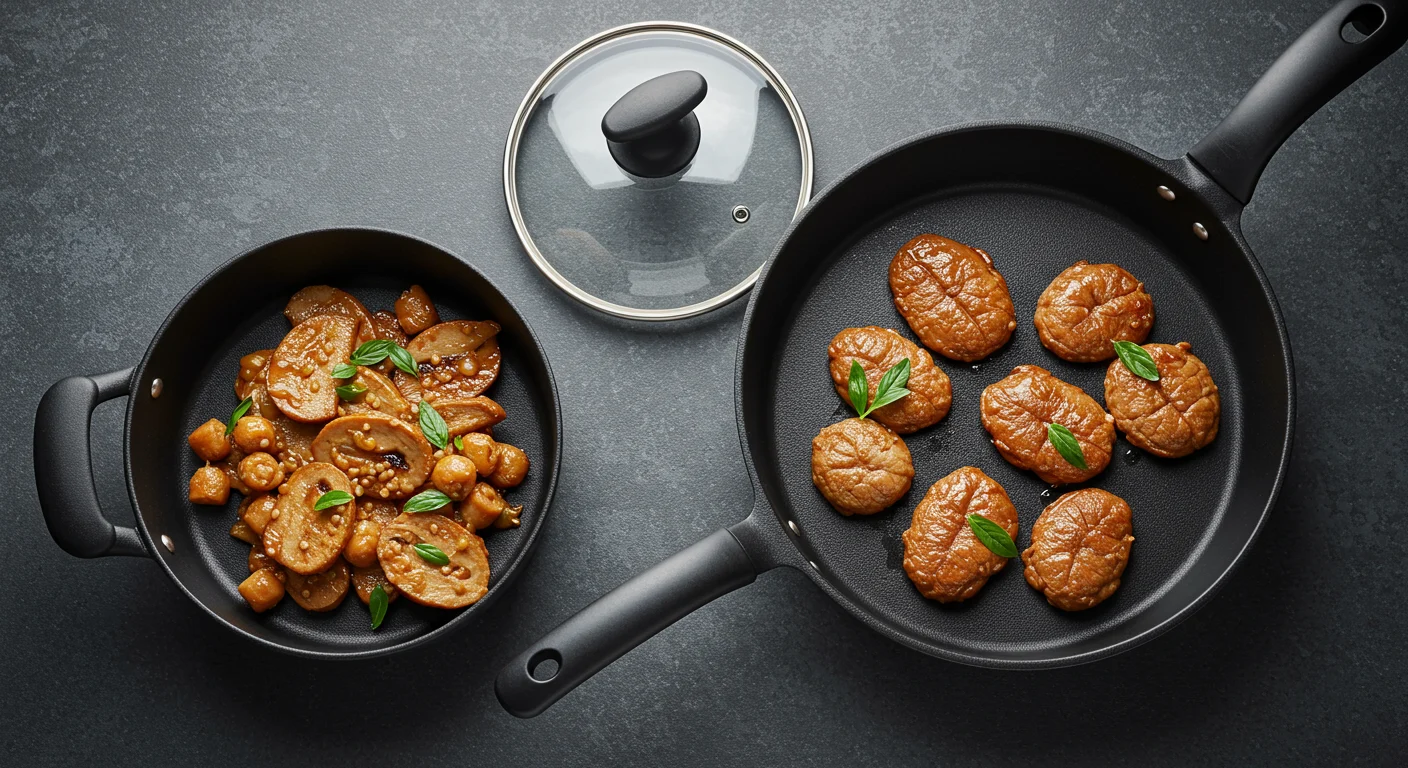
Truth About Non-Stick: Choosing The Safest Cookware Material
If your pans are flaking, sticking, or just making you nervous, you’re not alone. Here’s the thing—safe and easy isn’t a fairy tale, but the right pick depends on how you cook. I’ll break down the real differences so you can choose the safest cookware material for your kitchen without babying every pan.
Non-Stick 101: What that coating actually is
Most classic non-stick is PTFE (you know the big brand name), which is slick and great for eggs. Modern PTFE pans are PFOA-free, and at normal cooking temps they’re considered safe. Crank the heat too high, though—think empty pan screaming-hot—and the coating can degrade. Ceramic non-stick is different: it’s a silica-based sol-gel that’s PFAS-free, feels “green,” and sears nicely at first, but it usually loses its slipperiness faster. Neither coating is magic, and that’s the honest start.
Safety without the scare tactics
Let’s keep it real. PTFE coatings are stable when used properly—low to medium heat, some oil or butter, and no long preheats while empty. Regular kitchen use is fine; the “bad stuff” happens up in the 500–600°F range, which is more like forget-it-on-the-burner hot. Ceramic non-stick avoids PFAS entirely, which some folks prefer, but its performance fades quicker. Stainless steel and cast iron skip coatings altogether, making them a calm choice if you want the safest cookware material without the coating conversation.
A couple nuance notes. Stainless steel can leach trace nickel/chromium with acidic foods; most people are fine, but if you’ve got a nickel sensitivity, lean toward cast iron, carbon steel, or enameled cast iron. Bare cast iron can add a touch of iron to food—great for many, not ideal if you need to limit iron. And yeah, it’s true: birds are sensitive to fumes from overheated PTFE, so treat those pans gently and ventilate like you would with any hot cooking.
Durability: What actually lasts in a real kitchen
Believe it or not, the most durable “non-stick” isn’t a coating at all. A well-seasoned carbon steel or cast iron skillet can get slick enough for eggs and last decades. Stainless steel won’t be non-stick by nature, but it’ll outlive almost everything with a little technique. Meanwhile, PTFE pans usually perform beautifully for 1–3 years if you use low–medium heat and gentle utensils. Ceramic non-stick often fades sooner, sometimes within a year if you’re rough on it. If you want years, choose metal that can be reconditioned, not just a coating that wears off.
So…what’s the safest cookware material?
If you want worry-light, long-term gear: stainless steel (good 3-ply or 5-ply), cast iron, carbon steel, and enameled cast iron are the steady picks. They’re coating-free (or glass-enameled), resilient, and great with high heat. If you need easy eggs and crepes, a single non-stick skillet is still handy—use it gently, keep temps moderate, and replace when worn. That’s the honest balance between convenience and the safest cookware material for everyday life.
Make any pan safer (and less sticky) with simple habits
Here’s the move most people skip: preheat the pan, then add oil, then add food. Give stainless or carbon steel a minute to come up to temp, swirl in fat, and let food release on its own—no prying. Avoid aerosol sprays on non-stick (they gum up). Hand-wash, skip metal utensils, and don’t store heavy lids on coated pans. These tiny choices extend life and keep performance predictable, whatever material you choose.
When to replace a non-stick pan
If the surface is deeply scratched, flaking, or suddenly sticky even on low heat, it’s time. Warped bases that spin on the burner, stained “gummed” patches that won’t clean up, or a pan you overheated until it smoked hard—those are all fair reasons to move on. Coatings are wear items. No shame in retiring one and keeping your workhorse stainless or cast iron for the heavy lifting.
Quick picks and where to get the straight talk
If you’re shopping right now, I’ll keep it simple. Build your base with stainless or carbon steel, add one non-stick skillet for delicate foods, and keep a cast iron or enameled pot for searing and stews. For specific models—and the ones that actually hold up—check the latest Non-Stick Cookware Review on Consumer’s Best. I list the standouts and flag any quirks so you can buy once and cook happy.







